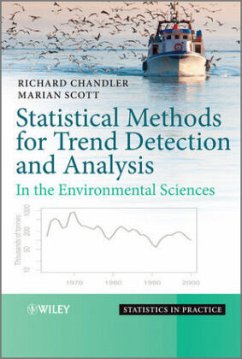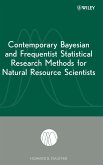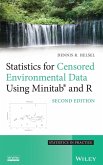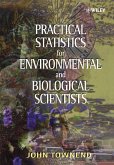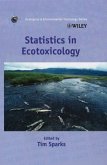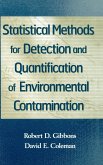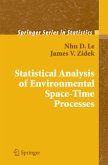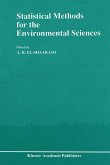The need to understand and quantify change is fundamental throughout the environmental sciences. This might involve describing past variation, understanding the mechanisms underlying observed changes, making projections of possible future change, or monitoring the effect of intervening in some environmental system. This book provides an overview of modern statistical techniques that may be relevant in problems of this nature.
Practitioners studying environmental change will be familiar with many classical statistical procedures for the detection and estimation of trends. However, the ever increasing capacity to collect and process vast amounts of environmental information has led to growing awareness that such procedures are limited in the insights that they can deliver. At the same time, significant developments in statistical methodology have often been widely dispersed in the statistical literature and have therefore received limited exposure in the environmental science community. This book aims to provide a thorough but accessible review of these developments. It is split into two parts: the first provides an introduction to this area and the second part presents a collection of case studies illustrating the practical application of modern statistical approaches to the analysis of trends in real studies.
Key Features:
Presents a thorough introduction to the practical application and methodology of trend analysis in environmental science.
Explores non-parametric estimation and testing as well as parametric techniques.
Methods are illustrated using case studies from a variety of environmental application areas.
Looks at trends in all aspects of a process including mean, percentiles and extremes.
Supported by an accompanying website featuring datasets and R code.
The book is designed to be accessible to readers with some basic statistical training, but also contains sufficient detail to serve as a reference for practising statisticians. It will therefore be of use to postgraduate students and researchers both in the environmental sciences and in statistics.
Hinweis: Dieser Artikel kann nur an eine deutsche Lieferadresse ausgeliefert werden.
Practitioners studying environmental change will be familiar with many classical statistical procedures for the detection and estimation of trends. However, the ever increasing capacity to collect and process vast amounts of environmental information has led to growing awareness that such procedures are limited in the insights that they can deliver. At the same time, significant developments in statistical methodology have often been widely dispersed in the statistical literature and have therefore received limited exposure in the environmental science community. This book aims to provide a thorough but accessible review of these developments. It is split into two parts: the first provides an introduction to this area and the second part presents a collection of case studies illustrating the practical application of modern statistical approaches to the analysis of trends in real studies.
Key Features:
Presents a thorough introduction to the practical application and methodology of trend analysis in environmental science.
Explores non-parametric estimation and testing as well as parametric techniques.
Methods are illustrated using case studies from a variety of environmental application areas.
Looks at trends in all aspects of a process including mean, percentiles and extremes.
Supported by an accompanying website featuring datasets and R code.
The book is designed to be accessible to readers with some basic statistical training, but also contains sufficient detail to serve as a reference for practising statisticians. It will therefore be of use to postgraduate students and researchers both in the environmental sciences and in statistics.
Hinweis: Dieser Artikel kann nur an eine deutsche Lieferadresse ausgeliefert werden.

